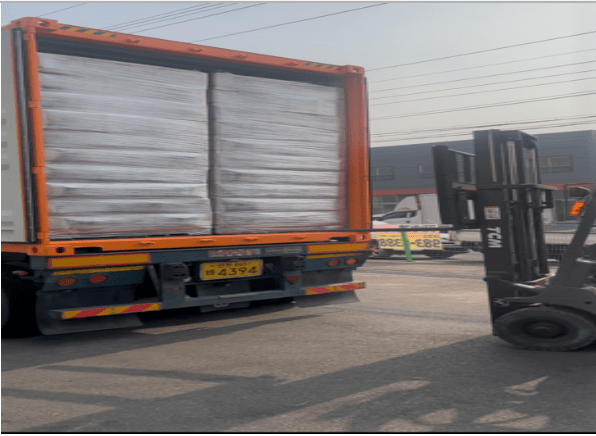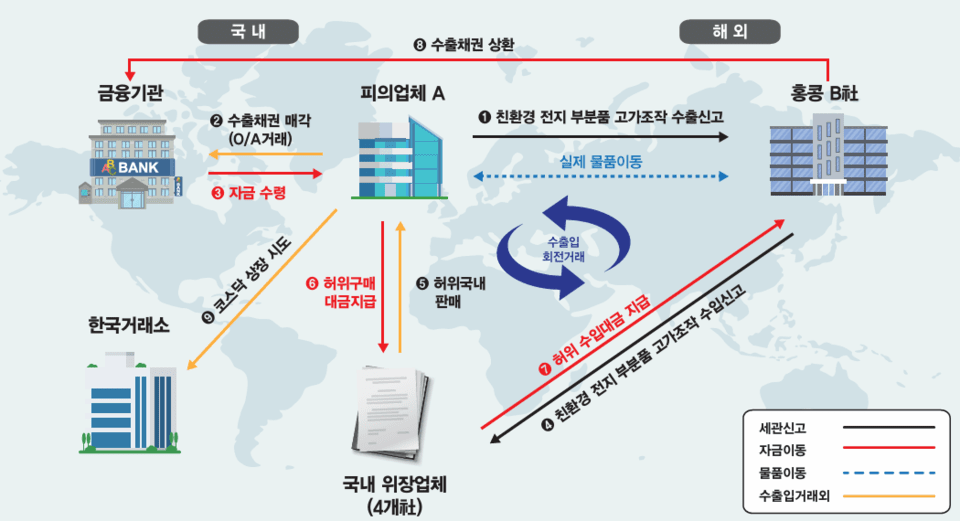The Korea Customs Service announced on the 14th that it held an opening ceremony for the ‘Economic Border, Public Welfare Crime Response Headquarters’ at the Incheon Main Customs Office and began intensive crackdowns on five major public welfare crimes.
The targets of the crackdown include the illegal import of food and pharmaceuticals, the illegal import of goods that pose a threat to life and industrial safety, smuggling of firearms and drugs, disruption of the capital market, and the illegal outflow of criminal funds, property embezzlement, and personal information theft.
The Customs Service explained that by blocking crimes at the border stage, they can prevent harm to citizens and reduce social costs. The response headquarters is organized directly under the Commissioner of the Korea Customs Service and collaborates with the Public Welfare Crime Investigation Unit, the Customs Inspection Unit, the Distribution and Sales Enforcement Unit, and the Risk Management Unit to conduct crackdowns.
The Public Welfare Crime Investigation Unit is composed of three teams at the main office and eleven teams at branch offices to focus on investigations. The Customs Inspection Unit conducts intensive inspections of suspicious goods in exports and imports as well as travelers, while the Distribution and Sales Enforcement Unit cracks down on violations of import requirements and origin masking. The Risk Management Unit is responsible for collecting and analyzing risk information and managing the risk of suspicious cargo.
During the first half of the year (January to June), the Customs Service detected 871 cases of the five major public welfare crimes, amounting to a total of 2.2407 trillion won. By category, there were 71 cases (112.2 billion won) of illegal food and pharmaceuticals, 19 cases (25.7 billion won) of safety-threatening goods, 55 cases (207 billion won) of capital market disruption, 109 cases (807.5 billion won) of overseas illegal earnings outflow, 617 cases (1.0883 trillion won) of drug offenses, and 9 cases (14 firearms) of firearm smuggling.

Examples of detections include the smuggling of 700,000 units (worth 8.5 billion won) of deer placenta stem cells, which are not allowed as raw materials for health supplements, and the concealment of 57,000 illegal abortion pills from China (worth 2.3 billion won) inside clothing for express shipping. Cases of importing 2 million unlicensed fluorescent lamp ballasts (worth 6.3 billion won) and 50 industrial shredders (worth 6.4 billion won) without safety certification were also detected.
For drug and firearm-related offenses, instances include smuggling synthetic cannabis (4.5 kg) and liquid cannabis (1.4 kg) via international mail or attempting to import firearms purchased through overseas mail orders into the country.

In the case of capital market disruption, there was an incident where clothing export prices were manipulated to create 100 billion won in false sales, thereby attracting investments worth 50 billion won from over 6,000 investors. Another detected case involved manipulating the price of eco-friendly battery components for export, leading to the embezzlement of a 1 billion won government subsidy and an 11 billion won trade finance loan.

Regarding overseas illegal earnings outflow, there were cases of converting 16.2 billion won in voice phishing proceeds into foreign currency through the hawala method, and disguising 10 billion won out of 44.4 billion won in online illegal gambling funds as legitimate trade payments to bring them into the country.
The Korea Customs Service sees public welfare crimes transitioning from petty crimes to organized crime and plans to block them at the border stage. To this end, they aim to strengthen targeted inspections of suspicious goods at airports and ports and expand activities for collecting risk information.
Lee Myeong-gu, Commissioner of the Korea Customs Service, stated during the inauguration, “Customs officials should approach their duties not merely as detecting illegal goods but with a sense of mission to protect the lives, safety, and property of citizens.” He added, “Until public welfare crimes are completely eradicated, we will prioritize citizen protection as the top goal of customs administration and respond with full force.”